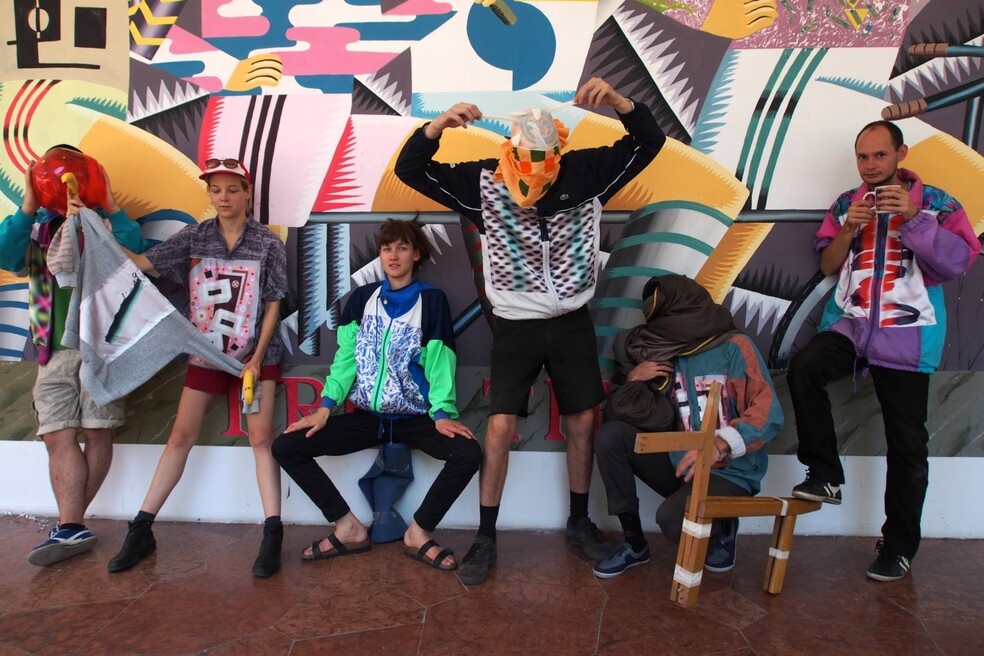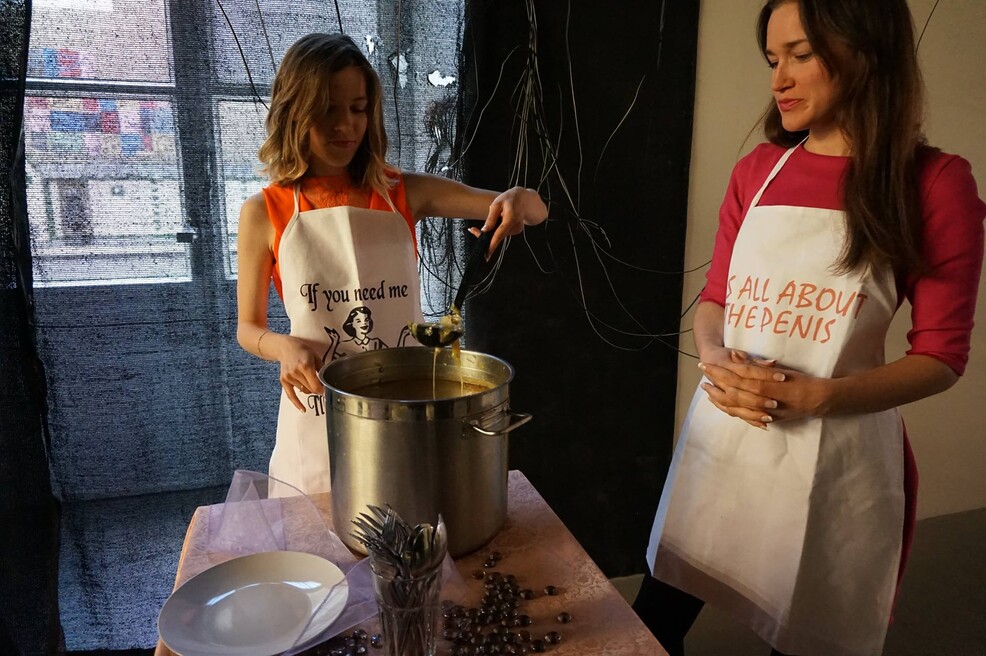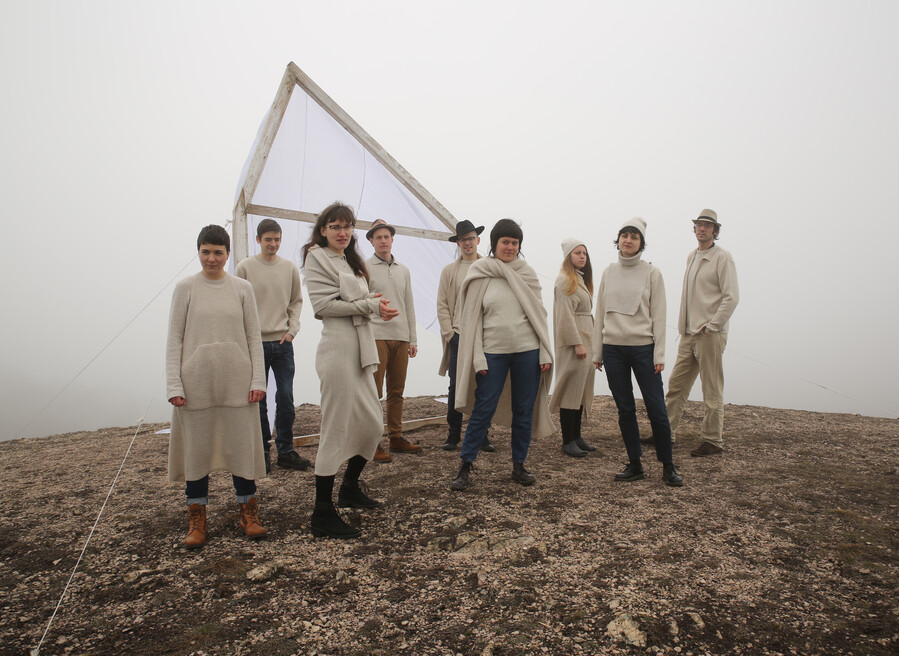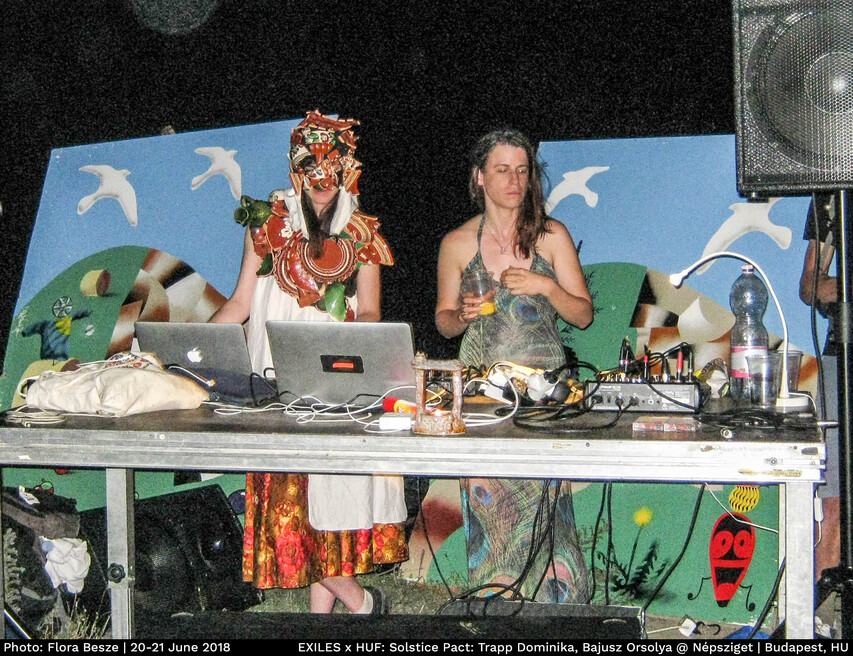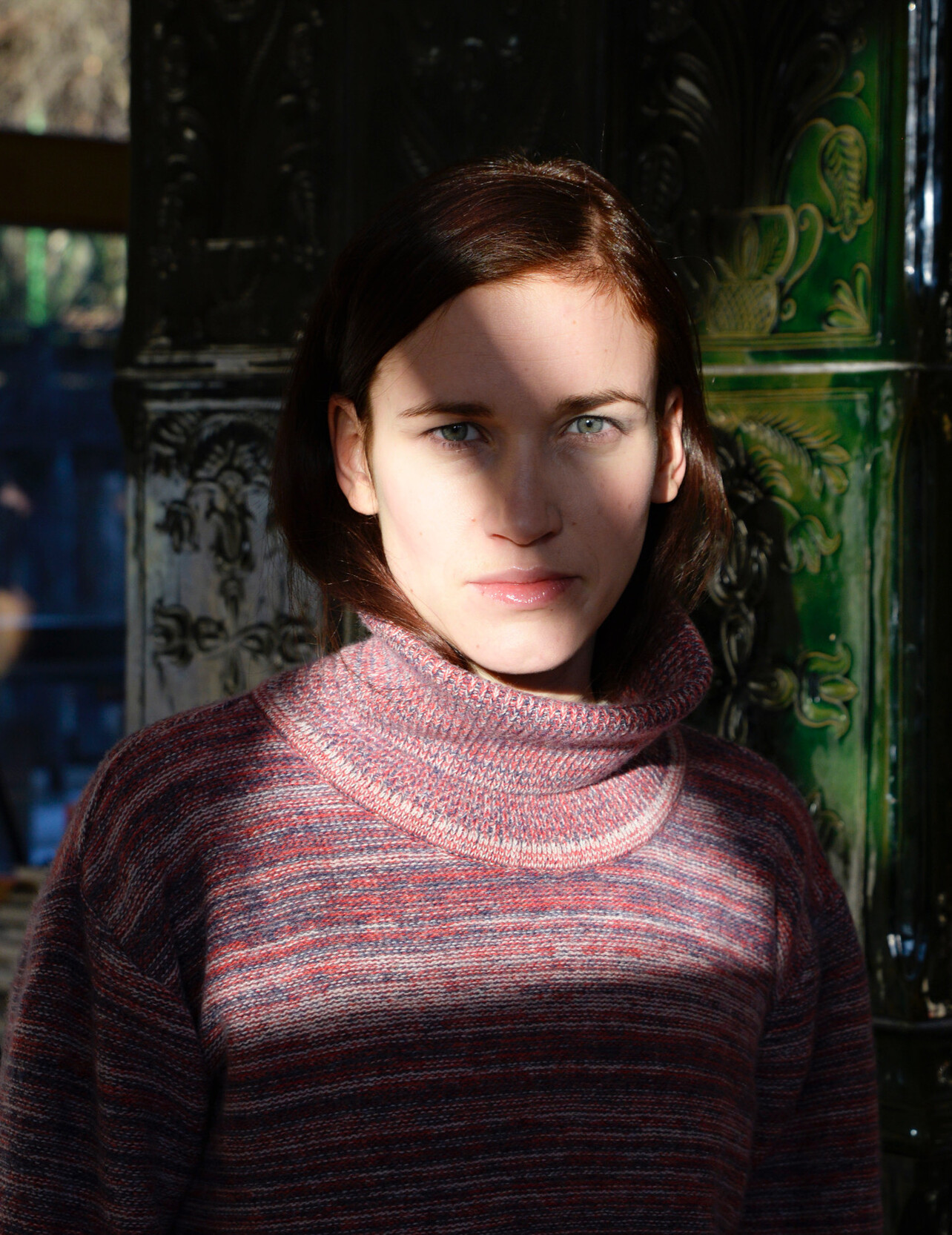Dominika Trapp
area: Sound Art, Stage Design, Theory
Key Facts
nationality
Hungaryarea
Sound Art, Stage Design, Theoryresidence
Budapestrecommending institution
tranzit.org/ERSTE foundationtime period
October 2018 - October 2018Dominika Trapp (1988) graduated as a painter at The Hungarian University of Arts, Budapest in 2012.
In her recent research-based projects she deals with the relation of the individual to global/local trends and theartist’s competence within this context. In her curatorial work, she attempts to create dialogue for communities that are separated from each other because of cultural, political, geographical or other reasons.
Solo exhibitions:
2016 Asarotos Oikos, Trapéz Gallery, Budapest (curated by Andi Soós and Nikolett Er?ss)
2016 And Indeed the Tragedy of Our Age Is Fully Present in It, Trapéz Gallery, Budapest (curated by Andi Soós and Nikolett Er?ss)
2015 Crystal Clear Diet, Collegium Hungaricum, Berlin (curator: Léna Szirmay-Kalos and Kata Krasznahorkai)
2015 I’ve Fallen and I Can’t Get Up!, Galerie Klubovna, Brno (curated by Anna Juhász)
2015 Dazed and Orthorexic, Zoenoteka, Berlin
2013 Chicks on Spleen, Ferencvárosi Pincegaléria, Budapest (curated by Noémi Fórián Szabó)
2013 Mermaid on the Edge of the Sword, Labor, Budapest (with Márton Mózes Murányi)
During my residency in Wien, I would like to continue my ongoing project: Peasants in Atmosphere. My project is an attempt at an interpretation of the heritage of traditional Hungarian culture along critical considerations, and also at bridging the progressive strains of contemporary art and the new generation of the Dancehouse Movement (Táncház Mozgalom) in the form of collaborative work based on extensive research.
During the project, I founded a band which is constituted of authentic folk musicians, punk singers and musicians from the experimental field – who all are from different cultural backgrounds with one specific connection to folk culture. Throughout the accompanying research, emphasis was placed on the study of the works of artists collectives of the past – one could say progenitors – that with progress in mind found inspiration in the culture of Hungarian peasantry. The result of the project was a staged musical piece and a publication which summarized the research.
Our new topic is The Last Witch Trials in Hungary. As in the previous research, this time I also would like to use critical approach. In the context of folk culture, feminist point of view is quite controversial and rarely applied. By taking it on, I would like to examine the traditional interpretation and the connecting sociohistorical studies of these problematic female fates alongside with feminist theories about witches. My role in Peasants in Atmosphere is founder, researcher, organizer, manager, spokeswoman and editor of publications – but I haven’t made any physical art pieces yet. During the residency, I would like to continue my research and to elaborate the concept of the new musical piece, alongside with the scenery, the costumes and other relating artworks. The result of my retreat would not solely serve my own artistic unfoldment, but my bandmates’ too. The whole aim of the Peasants in Atmosphere project is to invite people to engage in a symbolic synthesization process of worlds which seem to be apart from each other. Nowadays in Hungary, we can witness a politically driven division of our society, which pulls apart communities and strongly affects the cultural scene. Certain topics and types of approaches are stigmatized; examples include our folk heritage which can be easily exploited by political will – as our current era or historical examples can show. Our project goes against stigmatization and tries to create subversive discussions.
During my residency my aim was to start the artistic research for the next project of my conceptual-folk-music-band, Peasants in Atmosphere. I had the opportunity to buy books on my stipend, so I spent my days with reading, writing and planning. From the discourses around the crisis of human-nature relations, the musical concept of our last project was mostly inspired by the branch that emphasises the importance of mourning in the face of scientific facts that bear witness to irreversible environmental change. The topic of my artistic research remained the human-nature relationship, but I focused on women’s role in the paradigm, that pushed the whole Earth to the brink of ecological destruction.
In Wien, I dived into the key literature of eco-feminist theory, which investigates the relationship between women and nature, and challenges the notion of women being closer to nature than men. The theories which I was interested in are the ones that approach women-nature relationship from a materialist perspective, and draw a parallel between women and nature only on the ground of exploitation and not by biological means. The authors of these theories articulate a strong critique on the capitalist system and consider the exploitation of nature and women’s reproductive work as the guarantee of its operation. In the context of Hungarian folk culture, feminist point of view is quite controversial and rarely applied. Drawing from feminist theories on problematic female fates, scapegoats and rebel bodies, I would like to examine the traditional interpretation and the connecting socio-historical studies of witches and wise women in the Hungarian folklore. The result of my research would be a collaborative work, a staged musical piece and a publication as well.
I got a lot of help from the staff of tranzit and Erste Stiftung during my stay. I also had the opportunity to visit shows and exhibitions and to meet some members of the Viennese art scene. I’m still in contact with some of my fellow resident artists.
